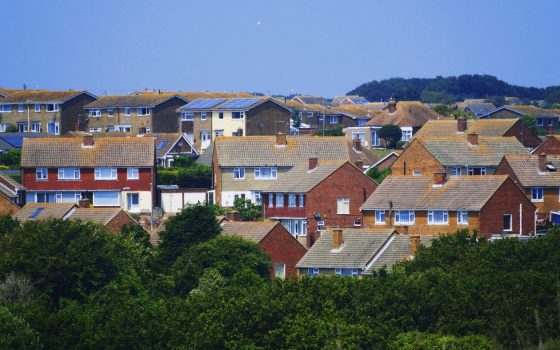Our future depends on co-operation
The expansion of co-operatives can help us meet today's challenges
25 June 2019
It is a time of great distraction. Our plans to leave the European Union are burning, our government is fiddling with its leadership and, while it makes for news and even entertainment, it does little to address the larger agenda or the more challenging trade-offs ahead. In the next few weeks, the UK is due to report to the United Nations on its plans and progress around the 17 Sustainable Development Goals (SDGs). It is arguably the most important political and policy process in the world, and so far the UK contribution is… diddly squat.
I have been in the former manufacturing town of Tampere in Finland over the last week – an escape from the great distraction and a refreshing prompt for what is still possible. The country is a model for action on the SDGs. It has set stringent carbon targets for the future – aiming to be carbon neutral by 2035 – and has a clear plan of action, focusing on the goals that matter most to the country. This cascades down through Finnish society and the economy. The leading retailer, SOK, has developed a comprehensive plan of action tied into the national programme – 100 Acts of Responsibility – all with a clear and compelling purpose of improving the country as a whole.
What has long marked Finland out is its capacity for co-operation. In many ways, given the links, and tensions, between and across the SDGs, co-operation is the unstated, eighteenth goal. Only with co-operation, can we make progress at all the levels we need.
Only with co-operation, can we make progress at all the levels we need
SOK itself is a co-operative co-owned by millions of members. 21% of the Finnish economy, in terms of gross value added, is generated by co-operative enterprise and there are more member-owners of co-operative enterprises in Finland than there are people. Finnish adults, on average, are members of two co-operatives; those in a rural setting, such as farmers, are likely to be members of four.
From the country’s high-tech businesses through to an extensive network of regional co-ops that ensure that there are banks, stores and other services within two miles of residents throughout the year, there are democratically co-owned services in every sector stretching right across the country.
When I joined the New Economics Foundation, over 25 years ago, we were just putting the finishing touches to a compelling campaign and book by Victor Anderson on Alternative Economic Indicators. The book remains for me one of the most elegant statements of the case for a more expanded conception of wealth and progress and the core concept of it is now realised in the inventory of the SDGs, offering a shared vision of sustainable development for 2030.
The question that remains is around the institutional capacity to change course – a great transition, rather than a great distraction.
The expansion of co-operatives could be a key part of creating an economy that addresses the challenges we face
Co-operation is key to this and it is timely that starting from today, co-operatives across the UK – credit unions, housing co-ops, farmer co-ops, consumer retail co-ops and worker co-ops – are coming together for Co-op Fortnight, calling for mass co-operation across the UK. The vision is one of a co-operative economy.
One way or another, to deliver the SDGs, a fundamental change in the activity of markets is needed. The challenge of addressing the issue of human well-being in the context of resource constraints, habitat and species loss and an unstable climate calls not just for co-operative enterprise at the margin but whole co-operative economies. It calls for models of wealth creation focused on human needs and sustainability: models that, in the words of James Robertson, are cost saving rather than growth maximising.
The expansion of co-operatives could be a key part of creating an economy that addresses the challenges we face, including an ageing population or climate change, and produces goods and services to meet these challenges. NEF has done some work on how the expansion of the UK co-operative sector can be achieved, putting the power to determine the direction of business in the hands of those with an interest in addressing today’s challenges and who live in the communities directly affected. To do what is needed, we have to learn to co-operate with our own future.
Ed Mayo is Secretary General of Co-operatives UK, and a Fellow and former Chief Executive of NEF.
Image: Unsplash
Topics Ownership






